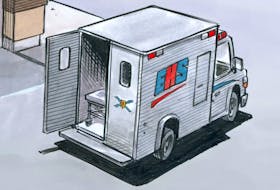Elections in Alberta last week and Ontario last June mean Prime Minister Justin Trudeau and Environment Minister Catherine McKenna have lost a key talking point in support of carbon pricing heading into the Oct. 21 federal vote.
Last year at this time, they were able to boast, as they did incessantly, that more than 80% of Canada’s population (86% actually) lived in the four provinces that already had carbon pricing — Ontario, Alberta, B.C. and Quebec.
But with the election of Premier-designate Jason Kenney and the United Conservative Party in Alberta, and Premier Doug Ford and the Progressive Conservative party in Ontario, that number has been turned on its head.
Today, most of Canada’s population, 59%, lives in the five provinces — Ontario, Alberta, Saskatchewan, Manitoba and New Brunswick — that oppose Trudeau’s carbon tax and are challenging it, or are about to, in court.
That means neither Trudeau nor McKenna can now portray provincial governments opposed to their carbon tax/price as isolated hold-outs.
The fact is they now represent 50% of the provinces with almost 60% of Canada’s population.
Many (although not all) legal experts believe the Trudeau government will eventually win the legal challenges against his carbon tax by the provinces opposing it.
But the fate of Trudeau’s carbon tax won’t be decided in the courts — given the lengthy time it will take to hear all the legal challenges and appeals — but in the Oct. 21 federal election, now exactly six months away.
Since Conservative leader Andrew Scheer has promised to abolish Trudeau’s carbon tax, it will be dead on arrival if he wins a majority government.
If Trudeau wins a majority government on Oct. 21 (or a minority where he can obtain enough support from the opposition parties) his carbon tax will forge ahead.
At that time we’ll presumably learn, since he’s not telling us now, how much higher he plans to hike his carbon tax — currently at $20 per tonne of industrial greenhouse gas emissions, rising to $50 per tonne in 2022 — after 2022.
Since the federal government has repeatedly hinted at imposing more “stringent” carbon taxes on Canadians post-2022, Trudeau should tell us going into the Oct. 21 election how much higher he intends to boost his carbon tax, after 2022.
For one thing, if he wins the election, he’ll be in power until 2023.
Surely, if it’s true that, as Trudeau claims, his carbon tax is going to make most Canadian households in the provinces where he’s imposed it richer because of its rebate provisions, that shouldn’t be a problem.
Because if Trudeau’s carbon tax is going to leave most of us better off financially, surely the higher the carbon tax he imposes, the better off we’ll be, right?
Back in the real world, if Trudeau’s carbon tax is going to be a major issue in the Oct. 21 election — as some pollsters say it will be — then it will be one fuelled by political rhetoric rather than reality.
Everyone who’s looked at the numbers knows Trudeau’s current carbon price/tax isn’t going to achieve the commitments he made to the international community to reduce Canada’s emissions to 17% below 2005 levels by 2020 and to 30% below 2005 levels by 2030.
All Trudeau’s carbon tax really is, is virtue signalling.
It’s only actual virtue will be — if one considers it a virtue — that it will reduce emissions more than Scheer’s plan, which we haven’t even seen yet.
Copyright Postmedia Network Inc., 2019








